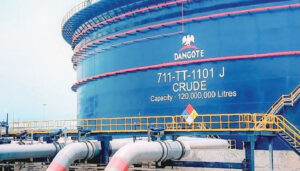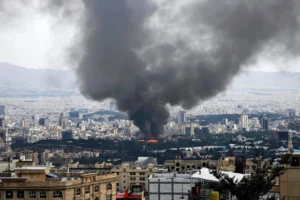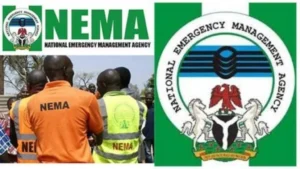
Nigeria’s expenditure on importing premium motor spirit (PMS) and other petroleum products surged to N15.4 trillion in 2024, a sharp increase from N7.5 trillion in the previous year, despite the operational launch of local refineries.
According to the National Bureau of Statistics (NBS) foreign trade data for 2024, petrol imports dominated Nigeria’s trade, with total merchandise trade reaching N36.6 trillion in the last quarter of the year. A deeper analysis revealed that petrol imports skyrocketed by 105% over the past three quarters.
Nigeria’s fuel import bill has been on a steady rise over the past five years. In 2020, the country spent N2.01 trillion on fuel imports, which more than doubled to N4.56 trillion in 2021. By 2022, the figure climbed to N7.71 trillion before slightly dipping to N7.51 trillion in 2023. However, 2024 saw a historic spike, with fuel import costs hitting an unprecedented N15.42 trillion, the highest in Nigeria’s history.
This increase indicates that Nigeria remains heavily reliant on fuel imports despite an increase in local refining capacity. In 2024, major refineries, including Dangote Refinery, commenced petrol production, while the Port Harcourt and Warri refineries resumed operations.
Further data shows that in February 2025, Nigerian oil marketers imported petrol worth approximately N935 billion. Between October 2024 and January 2025, petrol imports totaled N5.5 trillion, according to NBS and the Nigerian Ports Authority.
Commenting on the trend, the Executive Secretary of the Major Energies Marketers Association of Nigeria, Clement Isong, argued that fuel importation fosters market competition and helps stabilize prices. “What importation does for us is contribute to market competitiveness. The price movements you are experiencing and the competition in the market are due to importation. Importation is useful,” he said.
However, Dangote Refinery President, Aliko Dangote, has consistently opposed continued fuel imports, asserting in February 2025 that his refinery, with a 650,000 barrels-per-day capacity, can meet Nigeria’s entire petrol demand.
Despite this, the Nigerian Midstream and Downstream Petroleum Regulatory Authority (NMDPRA) reported that local refineries, including Dangote’s, only met 50% of the country’s petrol needs in February 2025.
Meanwhile, speculation persists that the Nigerian National Petroleum Company Limited (NNPCL) continues to import fuel, though the company has denied these claims, insisting it has not imported petrol in 2025.
Currently, petrol prices in Nigeria range from N860 to N970 per litre, depending on location. A recent price war between Dangote Refinery and NNPCL has driven prices as low as N860 per litre in Lagos and N880 in Abuja.







